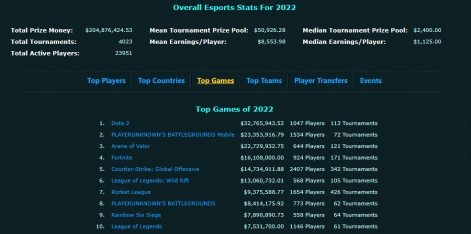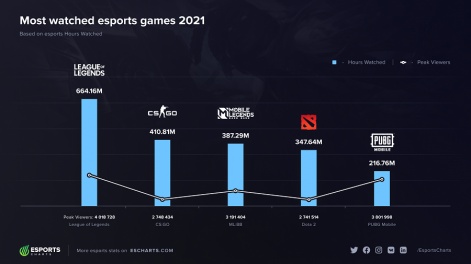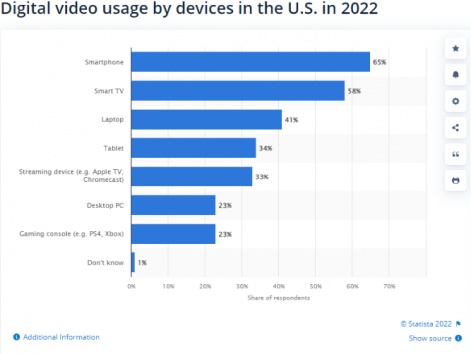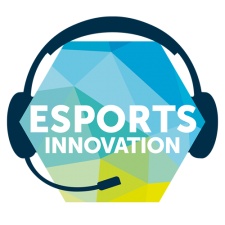Oscar Clark has been working in games since 1998 and literally wrote the book on Games as a service. He is Chief Strategy Officer at Fundamentally Games LTD, a publisher of living games committed to transparency and genuine partnership with developers. Here he give us his take on the state of esports on mobile.
Mobile gaming has come to dominate the games market over the past few years, but eSports seemed to remain the province of the PC until recently. The convenience of our phones for media consumption has changed the shape of the scene completely.
To my mind esports seemed to be dominated by DOTA, LOL, Counterstike and Starcraft. This remained the case for years although there have been occasional titles stepping up like Fortnite or Hearthstone or Overwatch. But in general, this has be a small percentage of the titles that had that intrinsic design that would work well for elite competitive play. An esport remains an expression of the community passion more than how much money a publisher throws at the prize pool.
With the Snapdragon Pro series announcement earlier this year I was a little sceptical about esports on mobile. Not really because of gameplay. Titles like Clash Royale, PubG Mobile and Arena of Valor clearly show serious competitive play exists on the smartphone. But I just wasn’t convinced that the mode of use of the device was ideal for most games. I mean who would spend hours upon hours playing on their phone screens.
Then I looked it up.

Source: eSportsEarning.com
Over 2022 PUBG mobile and Arena of Valour have only BEEN stopped from taking the top spot in terms of prize money by DOTA2. Add to that that the viewing figures show Mobile Legends: Bang Bang pushed Dota 2 out of the top 3 ‘most views’ last year. This Mobile MOBA reached a peak of 3.2m viewers in its playoff stage for the M3 World Championship IN 2021.

Source: Escharts.com
What has driven this dramatic change? We could talk about the penetration of smartphones as a driving force, but I think that is too obvious. More interesting to me is the dominance of video viewing of mobile:

This to me shows an inevitability of the dominance of mobile for esports, but with a few caveats.
Portrait – holding a phone in landscape mode is not all that comfortable over an extended time. Sure, you can have a stand or rest your phone against something. But portrait is a much more natural way to engage and there is a reason why TikToc/Shorts and Stories are making video consumption easier tall rather than wide. Anecdotally we know that portrait mode play gets much more adoption that landscape, but there are a few games genres (Shooters/MMOBAs) where the historic expectations of landscape (arguably) seem to still work well enough.
Streaming Setup – being able to stream natively on your device is a pain. There are some options including OBS and Twitch apps as well as dedicated platforms like Bunch or Game.TV but if you want to put a human face on the game this can be a pain on a small screen especially where you need all the real-estate you can get to perform at peak ability. We need to feel connected to the player at the end of the day, something not as easy to achieve through an avatar – seeing the person matters. Some of this could be helped by the developers integrating tools in the game or server to support sharing, but that’s not always the biggest priority.
Design Cadance – Most mobile esports game designs are essentially lifted from the PC/Console experience. But mobile has (arguably) more of a casual, drop-in-drop-out, playing style. We are yet to see (IMHO) mobile first experiences which tap into the unique mode of use of the handheld device. If we are to see amazing mobile-first designed esports we will need to find the right cadence which makes sense on the device yet also amplifies skill-based play. It has to create tension, speculation and drama, suitable for commentary/streaming and culminating in exciting moments of release. I suspect that ideal game design will also need to smoothly integrate tournament play and social elements natively, removing the potential friction switching from play, to share, to view.
Play2Earn Confusion – Some of the tools, platforms promoting esports, especially on mobile, are focused on the Play2Earn model (and increasingly Web3/NFTs) and that model can be viewed with suspicion by causal players especially. Making it hard to build up that very community which will realise the potential of the game as an esport. One of the keys of games is that they are playful, with no real-world consequence. However, most play2Earn options instead turn the fun activity into work. Esports has to feel aspirational, the professionalisation of your skills as a player and the potential for fame, fortune and prestige.
In summary, I believe it won’t be long till a uniquely mobile-first esport game that really feels native to my smartphone smashes the esports charts. That being said, I suspect for now the rise and rise of mobile esports will continue to come from ported concepts inspired by historic designs. PC/Console esports aren’t going anywhere and I am sure will retain a veneer of quality and expectation, especially from hardcore audiences. But those PC/Console games which tap into the ubiquity and unique qualities of mobile viewing may find themselves a boost as well.
Whatever the platform, esport games have to focus on skill and community. Mobile titles seeking a top spot in this space have to also perfect their design cadence for the smartphone, as well as making sharing the human story (streaming/sharing/viewing) trivially easy. If they can pull that off, without creating confusion around Play2Earn, I feel that they have the potential to dominate the next decade of esports.
About Fundamentally Games
Fundamentally Games Ltd was founded in 2019 to focus on bringing games to live, helping game developers with managing live operations to scale their game. Their engagement-led strategy aims to scale games faster by getting more players, doing more things, more often and for longer. Now offering publishing and UA funding with a commitment to transparency and genuine partnership with developers.
www.fundamentally.games






















